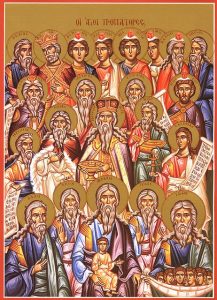 Colossians 3:4: “When Christ who is our life appears, then you also will appear with him in glory.”
Colossians 3:4: “When Christ who is our life appears, then you also will appear with him in glory.”
This first phrase from today’s Epistle as the Church begins it’s celebration of the birth of our Lord really tells us what Christmas is all about. This is the announcement of the feast. The Word of God, appearing in our world, is the glory of the believer. He appears in humble surroundings, but invites all to the feast!
The gospel (Luke 14:16-24) tells us that those who are well off refuse the invitation, but it is “the poor and the maimed and the lame and the blind,” who come, it is those in “the highways and hedges” who are “compelled to come.” Mary probably realized this when she prophesied, “He has put down the mighty from their thrones, and exalted the lowly.” (Luke 1:52) The angels appear to the shepherds in the fields, and they are invited to the house of the Lord. The glory of the Lord is his humility, and our glory is our humility. For all that, everyone is invited to the banquet, and the wise and the rich from Persia come with expensive gifts, though they too are outsiders, and the epistle tells us “there is neither Greek nor Jew, circumcised nor uncircumcised, barbarian, Scythian, slave nor free, but Christ is all and in all.” (Colossians 3:11)
Those who welcome Christ will put aside “anger, wrath, malice….” (Colossians 3:8) The first sticheron at Christmas chants, “let us proclaim the present mystery by which the partition has been broken and the flaming sword withheld. Now the Cherubim shall let us all come to the Tree of Life.”
This is putting Christ back into Christmas!
Meditation by Archpriest David Petras
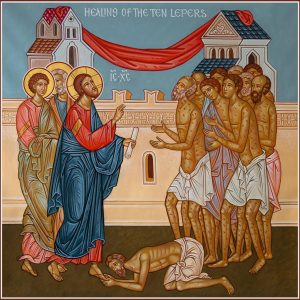 Ephesians 6:10-17; Luke 17:12-19
Ephesians 6:10-17; Luke 17:12-19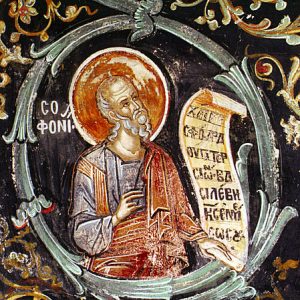 Today, the Byzantine and the Latin Churches liturgically recalls the Prophet of Zephaniah. In Hebrew, the name means “Yahweh has concealed.” Zephania is known in biblical study as the ninth of twelve minor prophets (taken in literary order). The Latin Church remembers the Prophet as the one who inspired the hymn, Dies irae. The Prophet gave his message to Jerusalem to be united in their worship and faith in the true God otherwise face God’s judgement, “the Day of the Lord.”
Today, the Byzantine and the Latin Churches liturgically recalls the Prophet of Zephaniah. In Hebrew, the name means “Yahweh has concealed.” Zephania is known in biblical study as the ninth of twelve minor prophets (taken in literary order). The Latin Church remembers the Prophet as the one who inspired the hymn, Dies irae. The Prophet gave his message to Jerusalem to be united in their worship and faith in the true God otherwise face God’s judgement, “the Day of the Lord.”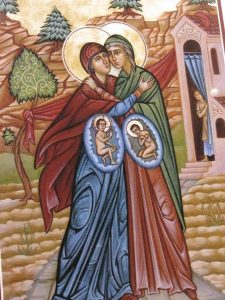 On the Fourth Sunday [that is, today] before Christmas, the Syrian Church remembers the Visitation of Mary to her cousin Elizabeth. In the Byzantine Church, there is no feast of the Visitation, though this gospel is the common gospel for Matins of Feasts of the Theotokos.
On the Fourth Sunday [that is, today] before Christmas, the Syrian Church remembers the Visitation of Mary to her cousin Elizabeth. In the Byzantine Church, there is no feast of the Visitation, though this gospel is the common gospel for Matins of Feasts of the Theotokos.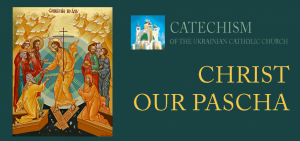 Bishop Peter Stasiuk, C.Ss.R. of Australia
Bishop Peter Stasiuk, C.Ss.R. of Australia 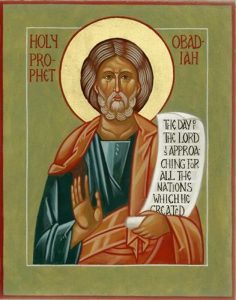 We know nothing certain about the life of the Prophet Obadiah. The Synaxarion [the lives of saints] identifies him with the servant of King Ahaz, who left to become a follower of Elijah, but that is not possible, since Obadiah’s prophecy was against Edom, pointing to a time after the exile. He is one of several prophets commemorated in the Phillip’s Fast, and verse 21 can be related to the coming of Jesus into the world: “And deliverers will ascend Mount Zion to rule Mount Esau, and the kingship shall be the Lord’s. (Obadiah 21)”
We know nothing certain about the life of the Prophet Obadiah. The Synaxarion [the lives of saints] identifies him with the servant of King Ahaz, who left to become a follower of Elijah, but that is not possible, since Obadiah’s prophecy was against Edom, pointing to a time after the exile. He is one of several prophets commemorated in the Phillip’s Fast, and verse 21 can be related to the coming of Jesus into the world: “And deliverers will ascend Mount Zion to rule Mount Esau, and the kingship shall be the Lord’s. (Obadiah 21)”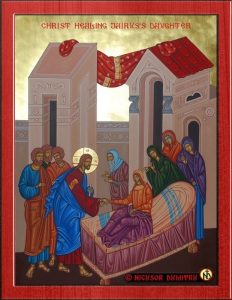 Healing upon Healing
Healing upon Healing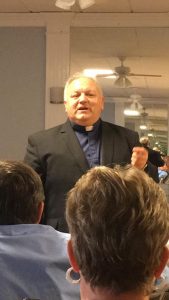 Father Ivan Kaszcak, PhD, presenting on Soter Stephen Ortynsky (1866-1916), first bishop of Ukrainian Greek Catholics in the USA beginning when he received jurisdiction on 3 January 1913.
Father Ivan Kaszcak, PhD, presenting on Soter Stephen Ortynsky (1866-1916), first bishop of Ukrainian Greek Catholics in the USA beginning when he received jurisdiction on 3 January 1913.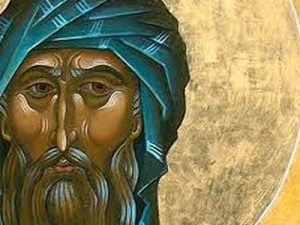 [be sure to watch the video linked below]
[be sure to watch the video linked below]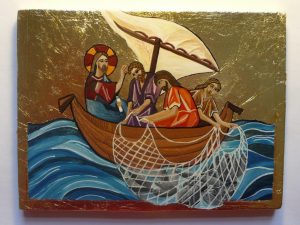 2 Corinthians 6:1-10; Luke 5:1-11
2 Corinthians 6:1-10; Luke 5:1-11